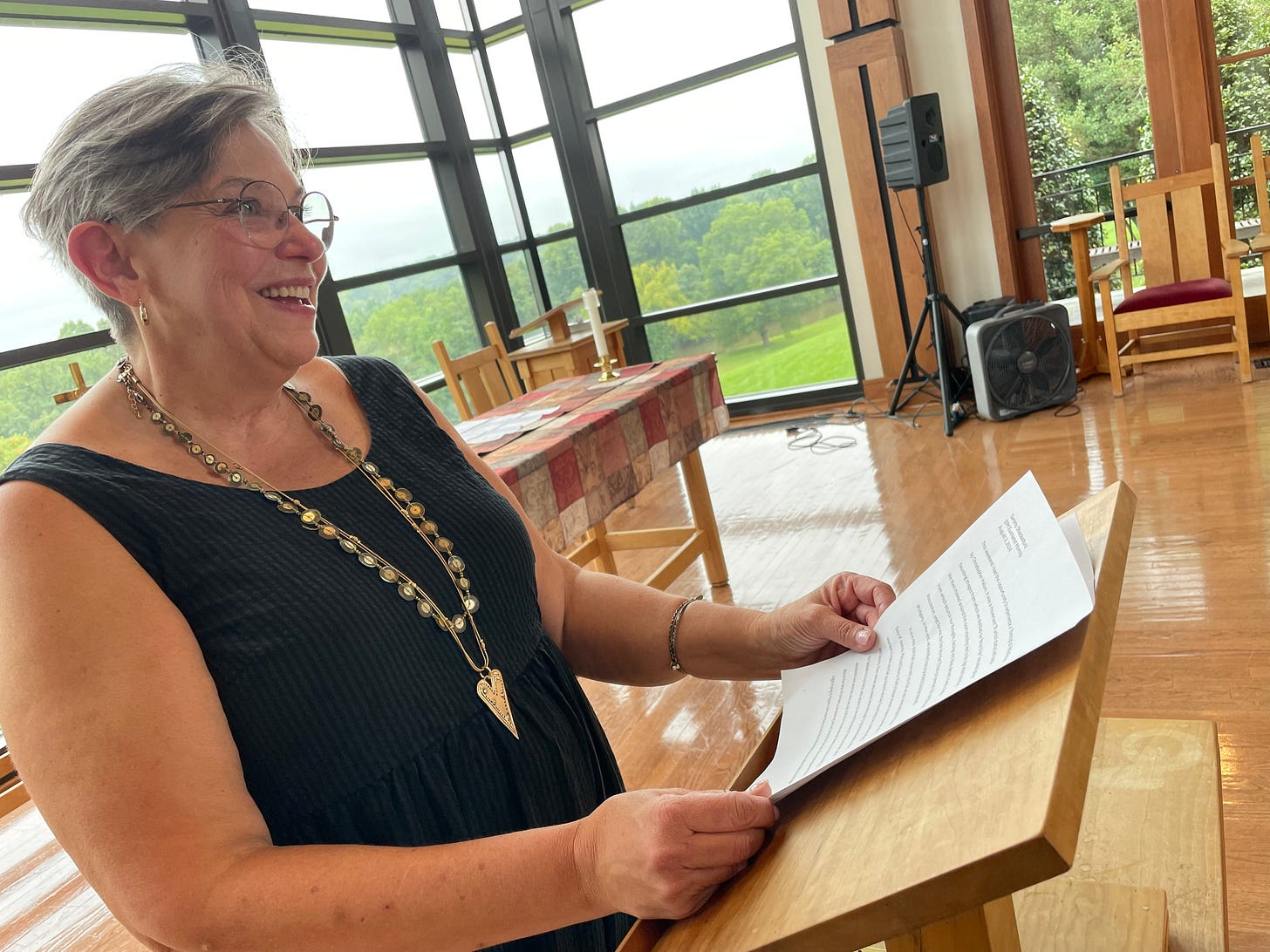
When the sabbath was over, Mary Magdalene, and Mary the mother of James, and Salome bought spices, so that they might go and anoint Jesus. And very early on the first day of the week, when the sun had risen, they went to the tomb. They had been saying to one another, “Who will roll away the stone for us from the entrance to the tomb?” When they looked up, they saw that the stone, which was very large, had already been rolled back. As they entered the tomb, they saw a young man, dressed in a white robe, sitting on the right side; and they were alarmed. But he said to them, “Do not be alarmed; you are looking for Jesus of Nazareth, who was crucified. He has been raised; he is not here. Look, there is the place they laid him. But go, tell his disciples and Peter that he is going ahead of you to Galilee; there you will see him, just as he told you.” So they went out and fled from the tomb, for terror and amazement had seized them; and they said nothing to anyone, for they were afraid. (Mark 16:1-8)
This weekend, I had the opportunity to experience a Theological Reflection (TR) led by Christopher Halliday. It was TR in Motion, which started with some haunting images from which we distilled our focus to be “unmarked graves.” We then moved around the room, standing next to the sign that identified from which source our thoughts, feelings, and ideas were derived. It was a lively discussion, and for me, the first time that TR had not seemed like complicated drudgery. In the end, we identified how important it is to be named.
In this spirit, I share with you that we are celebrating the Feast Day of Joanna, Mary, and Salome. Mark’s Gospel doesn’t name Joanna, so I wanted to make sure that you knew it was her Feast Day, too. Joanna, Mary, and Salome were three women who loved Jesus enough to go immediately after the Sabbath to buy herbs with which to anoint his body. Three women who wondered and worried who would roll the heavy stone away so they could go about the task of properly preparing Jesus’ body for burial. Did they spend the night trying to figure out how they could do it themselves or who they could go find to help them if they couldn’t? Did it bother them that Jesus would be laid to rest in an “unmarked grave?”
We will never know, for the heavy stone became the least of their worries when they arrived at the tomb! What they came upon was an open tomb in which they found a young man dressed in white, who told them that Jesus had been raised. They were instructed to go and tell Jesus’ disciple and Peter, the one who had denied him, that Jesus would meet them in Galilee. But, did they do this? No. Their terror and amazement got the better of them, and they ran off and “told no one what they had seen.”
I think that I would call these women the first Episcopalians because they were as frightened then as we are now of telling the Good News of the Risen Christ. They ran away from Evangelism as fast as we do. Evangelism is defined as “the spreading of the Christian gospel by public preaching or personal witness.” It is simple enough. All you must do is share with others your personal witness of the gospel, the “Good News” that Jesus' life, death, and resurrection brought the reign of God to Earth. And yet, as Episcopalians, this can be very hard for us. So hard that we go to church every Sunday, but rarely do we share with others outside of church what we are learning about in church.
But we are being trained to lead Education for Ministry, a curriculum that gives us the tools to do just this: spread the good news through the core practices of EfM, Living in community, Regular prayer and worship, Theological reflection, Study of Christian tradition, and Vocational discernment.
Our job now is to go and invite people to join us on this journey we call EfM, a four-year program, one year at a time. Don’t limit who you invite. EfM is not designed to be an exclusive club but an open door of exploration for all—even those people who worship in other denominations and faith traditions—even those who don’t worship anywhere at all.
When you invite someone to join your EfM group, you invite them to much more than a weekly meeting; you invite them to join you in the open tomb. So don’t let fear stop you from telling everyone you know, for the Good News knows no limits.




